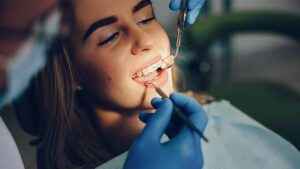Every patient, when they hear the words ‘wisdom tooth’ and ‘removal’ get this immediate flash in their head that ‘Oh, it’s going to be painful!’ But guess what? Having the wisdom teeth in your mouth is going to be much worse.
Let us understand what a wisdom tooth is and why it needs to be removed first.
Wisdom teeth are nothing but the last teeth in your dental arch. They are the 3rd set of molars in the arch and typically erupt around the ages of 21 – 27 years. Whereas all your other adult teeth completely form and erupt by the age of 14 – 15 years. They are considered as accessory teeth, meaning they have no real role in chewing. You can still have the same oral function even after getting these extracted.
Types of wisdom teeth removal
- Non- Surgical : If your wisdom teeth has erupted enough into the oral cavity, we can remove them easily without disturbing the adjacent structures too much
- Surgical : If the teeth are embedded into the bone and only a part of the tooth is visible outside or is covered by the gums, then we will have to cut open the covering gum and manoeuvre the adjacent bone to get them out.
Still worried? Know about the procedure and how we make it painless.
Both these procedures are performed under Local Anesthesia. You will be given a tiny injection to block/numb the area. This anaesthesia can actually keep you numb for up to 2 – 3 hours. Meaning we will have enough window of ‘painless time’ to remove your tooth. As the procedure takes place, you might feel a slight pressure as if someone is pressing hard on your hand. Once the tooth comes out, we close that area properly.
Once the anaesthesia effect wears down, yes you will feel some discomfort but your dentist will give your proper post care and medications to minimise post treatment pain too.
Now let’s see what happens if we leave the wisdom teeth as it is?
- If the tooth is tilted, it will start hitting the roots of the adjacent teeth. This adjacent tooth is important for chewing hence if it gets affected, it will have to undergo the procedure of root canal and crown placement.
- If the third molar has a cavity left in, it might cause an abscess or a cyst for which the treatment is very extensive.
- The gums surrounding the third molar might get infected, swell up and even cause difficulty in opening your mouth.






